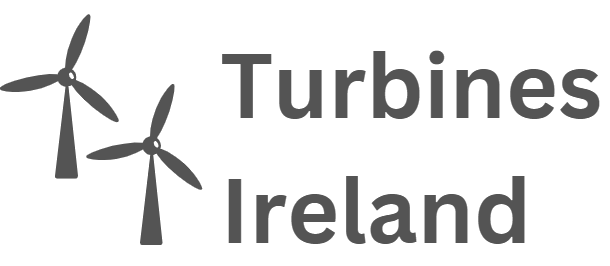
Renewable energy projects have been gaining significant attention in recent years due to their potential to address the challenges posed by climate change and reduce our dependence on fossil fuels. While the environmental benefits of renewable energy are well-known, it is equally important to understand the positive social impact these projects can have on communities. This blog post aims to explore the various ways in which renewable energy projects can create social value and contribute to sustainable development.
1. Job Creation and Economic Development
Renewable energy projects, such as wind farms and solar power plants, require a significant workforce for their development, construction, and maintenance. This leads to the creation of numerous job opportunities in the local communities where these projects are implemented. These jobs can range from skilled labor and engineering positions to administrative and support roles. The influx of new jobs stimulates economic growth, boosts income levels, and reduces unemployment rates in the area.
Moreover, renewable energy projects often attract complementary industries and businesses. For instance, a wind farm might lead to the establishment of manufacturing facilities for wind turbine components nearby, further contributing to the local economy. This multiplier effect generates additional employment and investment opportunities, fostering economic development in the region.
2. Community Engagement and Empowerment
Renewable energy projects involve extensive community engagement and consultation processes. Developers work closely with local residents, businesses, and organizations to ensure their concerns are addressed, and their interests are considered throughout the project lifecycle.
This level of engagement not only facilitates transparency but also empowers the community to actively participate in decision-making processes. It provides them with a platform to voice their opinions, share their knowledge, and influence the project’s design and implementation. This increased community involvement fosters a sense of ownership and pride among residents, leading to greater acceptance and support for renewable energy initiatives.
2.1 Benefits for Indigenous and Marginalized Communities
Renewable energy projects have the potential to bring significant benefits to indigenous and marginalized communities. These projects can help bridge the energy access gap by providing clean energy solutions to areas that are often underserved or off-grid. By ensuring access to reliable and affordable electricity, renewable energy projects improve the quality of life for these communities and contribute to poverty alleviation.
Additionally, renewable energy initiatives can create opportunities for indigenous communities to be involved in the project’s development and operation. This not only respects their rights and traditional knowledge but also enables them to gain economic benefits through partnerships, employment, and capacity building.
3. Environmental Justice and Public Health
Renewable energy projects play a crucial role in promoting environmental justice and addressing the disproportionate impacts of fossil fuel industries on marginalized communities. Many fossil fuel power plants are located near low-income neighborhoods, leading to air and water pollution, and adverse health effects for residents.
By transitioning to renewable energy sources, such as wind and solar, these noxious emissions and pollutants can be significantly reduced, improving air and water quality. This shift towards cleaner energy helps create healthier living environments for communities, reducing respiratory illnesses, and improving overall public health.
3.1 Mitigating Climate Change and Disaster Resilience
Renewable energy projects are crucial in mitigating climate change, which has significant social and economic impacts. By reducing greenhouse gas emissions, these projects contribute to limiting global warming and its associated risks, such as extreme weather events, sea-level rise, and food scarcity.
In addition, renewable energy systems enhance community resilience by providing reliable and decentralized power sources. This is particularly important in the face of natural disasters, as renewable energy projects can ensure continued access to electricity when traditional power grids are disrupted. Communities with renewable energy infrastructure are better equipped to cope with emergencies, communicate, and support relief efforts.
4. Education and Skill Development
Renewable energy projects provide opportunities for education and skill development, particularly in science, technology, engineering, and mathematics (STEM) fields. Local schools, colleges, and training institutes can collaborate with project developers to design courses and vocational training programs that equip individuals with knowledge and skills relevant to the renewable energy industry.
This educational focus not only prepares individuals for the job market but also promotes innovation and entrepreneurship. It encourages the growth of a skilled workforce that can drive the renewable energy sector forward, fostering economic diversification and long-term sustainability.
5. Cultural Preservation and Heritage
Renewable energy projects can be designed and implemented in a way that respects and preserves local cultural heritage. Developers can work closely with communities to identify culturally sensitive areas and incorporate traditional design elements into project infrastructure.
Furthermore, renewable energy projects can provide opportunities for cultural tourism and cultural preservation initiatives. For example, a community may develop guided tours to showcase their renewable energy installations, demonstrating their commitment to sustainable practices while promoting their unique cultural heritage.
5.1 Indigenous Knowledge and Traditional Practices
Renewable energy projects can benefit from indigenous knowledge and traditional practices. Indigenous communities often have deep insights into sustainable resource management and renewable energy practices that have been passed down through generations.
Involving indigenous communities in the planning and execution of renewable energy projects allows for the integration of their knowledge and practices, resulting in more effective and culturally appropriate solutions. This mutual learning and collaboration enhance project outcomes and contribute to the preservation of traditional knowledge systems.
Conclusion
Renewable energy projects offer much more than just environmental benefits. They have the potential to bring about positive and transformative social change. Whether it is through job creation, community engagement, increased access to clean energy, improved public health, or cultural preservation, renewable energy initiatives can contribute to sustainable development and create a better future for all.
